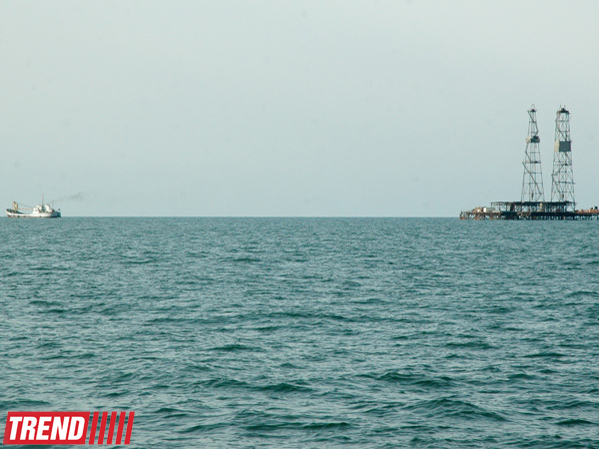Turkmenistan, Ashgabat, Nov. 14 /Trend H. Hasanov /.
Studies conducted by the IAEA (International Atomic Energy Agency) laboratory, have shown that the background levels of sea water in the Turkmen sector of the Caspian Sea meet the maximum permissible concentrations and are of the best quality in the Caspian Sea, the Neutral Turkmenistan newspaper reported.
The publication notes that at local level, the mission for environmental monitoring in the zone is assigned to the Caspian environmental service Caspecocontrol, a structural unit of the Ministry of Nature Protection.
The work of this service extends to the area of the Turkmen sector of the Caspian Sea from the Kazakhstan border to Iran, covering the two-kilometre security foreshore with located cities, towns and other settlements including industrial units.
The article says that Caspecocontrol works closely with domestic and foreign oil and gas companies conducting the exploration and development of promising deposits on land and sea with the largest enterprises of the processing industry, transport organisations and municipal buildings along a coastal strip.
The study area in Turkmen waters covers the entire area of Caspecocontrol activity. Samples were collected at 22 stations from the surface, bottom and intermediate levels of the sea.
The material collected from different depths was analysed on the major nutrients, oil products, phenols and metals. Oxygen saturation, temperature, and salinity were measured directly.
It is noteworthy that sampling was performed according to the method developed and used in the Caspecocontrol laboratory in accordance with international standards.
Constant monitoring covers the unique wetlands of global importance in the waters of the Khazar state nature reserve which has huge potential for the development of ecological tourism. This is a key ornithological territory of Turkmenistan in the global network of protected ecosystems of the planet.
Strict control of ballast water discharge, industrial and domestic waste water is set on the slopes of navigable canals in places of the concentration of enterprises, in port facilities, land and marine pipelines and other communication areas. A common network of monitoring stations covers the islands and shores of bays and inlets, the newspaper said.
Continuous supervision of water purity water is functioning on the shelf seas areas, in exploration and development drilling areas in existing and abandoned wells.
The article stressed that waste water from all fixed offshore platforms is biologically treated before being poured into the sea.
'To improve the accuracy of the analysis of sea water quality, the Caspecocontrol service data is reconciled with the docking results of research in the laboratories of coastal entities, actively introducing advanced technologies of zero discharge in practice', the article says.
The environmental status is being assessed, the hydrological regime of the Caspian Sea, the composition of the waters are researched by the hydro chemical laboratory services. Seawater samples are examined for the presence of contaminants on twenty parameters and on the basic physical characteristics, directly at the point of selection.
The monitoring results are included in the database of the Scientific Production Centre of the Ministry of Environmental Protection and used in government planning and in taking measures to prevent pollution of the marine environment.
Laboratory materials from long term observations on background monitoring of the Turkmen sector of the Caspian show that oxygen and nutrient regimes are normal and that the content of oil products, nitrites, phenols, heavy metals and other polluting components in sea water does not exceed the maximum permissible concentration (MPC).






